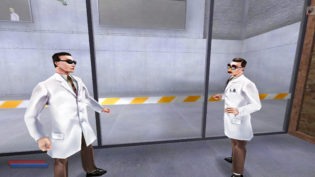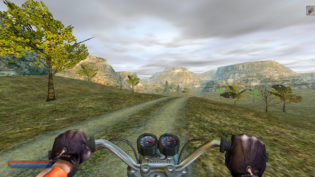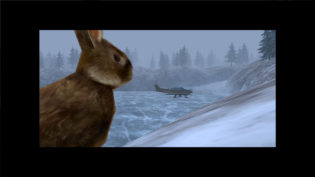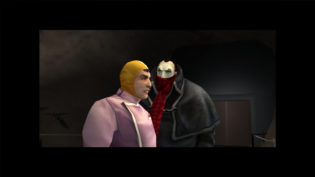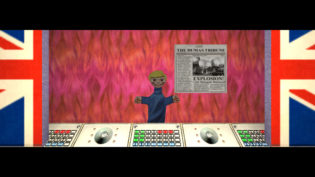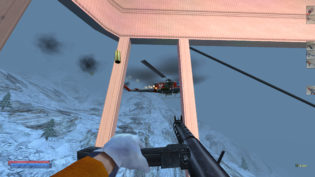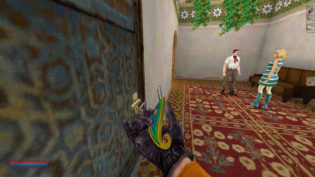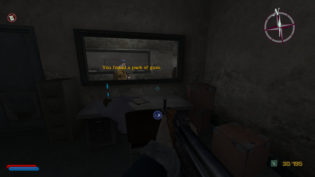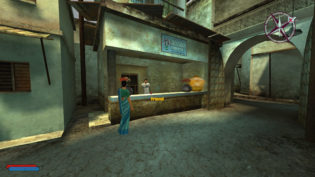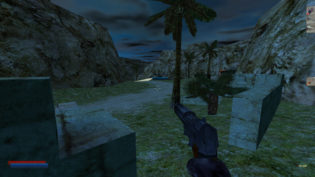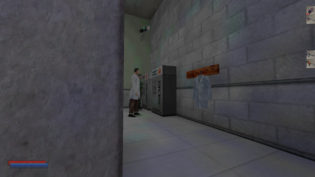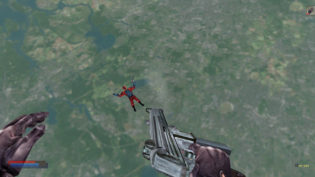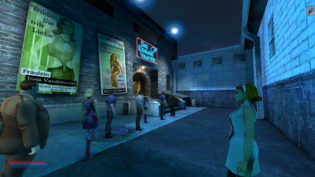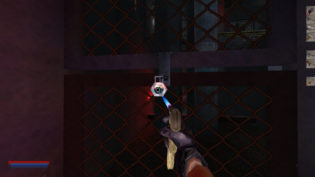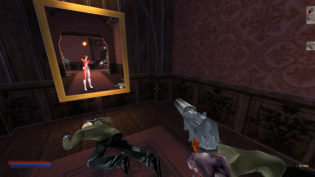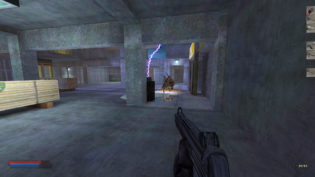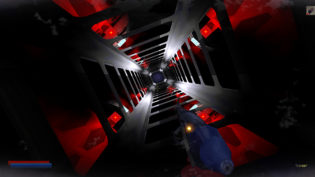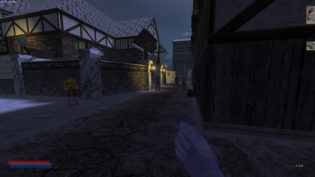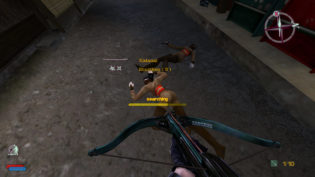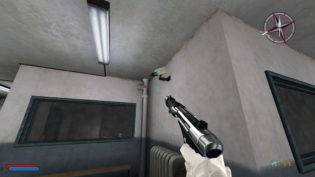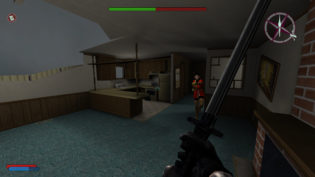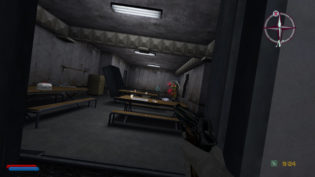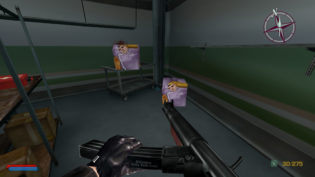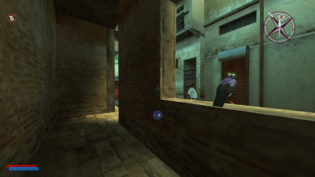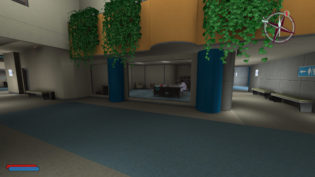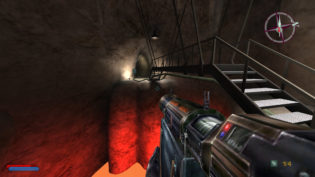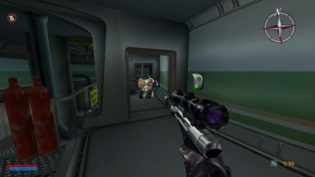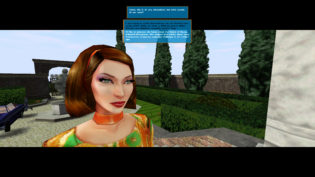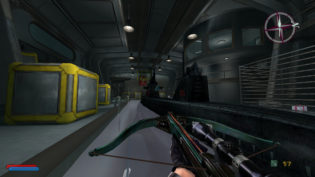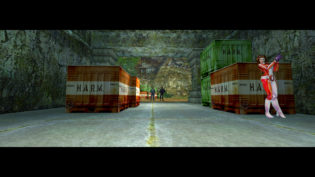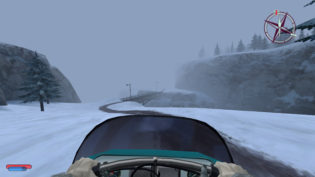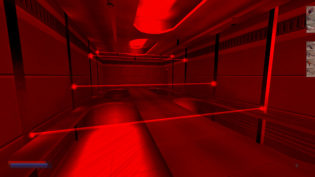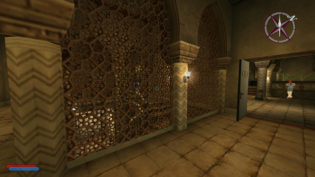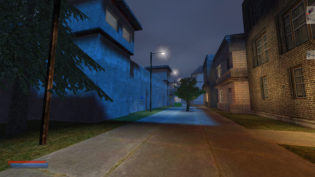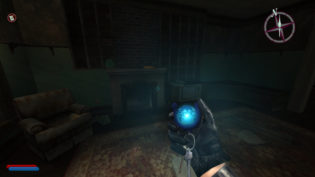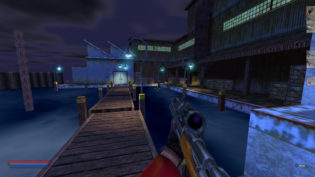O tempora is a series of retrospective posts where I play games from ages before to see if they stood the test of time.
Ah, Monolith Productions at their heyday… Not that their releases were consistently great or popular, but they’ve made some fantastic classics, most of which were powered by their own engine that was first developed for Microsoft to showcase the power of DirectX. Even though the usage of that engine began with the dreadful Blood 2 that no one should ever play, the first half of the 00s started an almost perfect set of games using that engine: The Operative: No One Lives Forever, Aliens Versus Predator 2, No One Lives Forever 2: A Spy in H.A.R.M.’s Way, Tron 2.0, F.E.A.R., Condemned: Criminal Origins were all instant classics and are still beloved and remembered by many. Three of these six titles, however, are not available anywhere digitally.
I used to love NOLF. They were among the very first games I played on my own PC back in the day and I’ve replayed them several times since. But the last revisit happened a very very long time ago – I don’t even remember when. So I decided that it was a good time to finally remember why people have such fond memories about these.
Both of the main games in the NOLF series (there’s a third one, I will mention it too) are a mix of genres, but first and foremost they are FPS titles. They’ve borrowed ideas from Goldeneye 007, original Medal of Honor, Thief and System Shock 2 and then themed the gameplay and world around a very Austin Powers-esque inspired setting and story. But, despite drawing so much from immersive sims and stealth titles and leaning heavily into stealth, both titles feel very distinctly different from the usual approach to the genre and have far more in common with nuances that would later be fond in other titles from Monolith.
They both give you lots of crazy gadgets, occasionally allow you to use a vehicle, drop you into crazy over the top situations from time to time and as far as objectives go, even though some stealth is always helpful, they don’t always require it or even punish you in a meaningful way for not using it. Guns also have special ammo types – poison bullets that make you hallucinate seeing goats everywhere? Yep, enemies have them as well. And these may go through your shields and damage your health directly, which is another unique idea the games had – a bigger focus on shields rather than health. First game was almost entirely dedicated to it and you almost never had a chance to find healing in levels, only bulletproof vests. Which was the main motivator to use stealth instead of just running and gunning.
Levels can get pretty crazy, as mentioned, and you tend to get several maps (with loading screens) for each big mission that takes place in a certain locale. Sometimes it’s more action-heavy, sometimes it’s more about stealth, sometimes all about stealth. Then you may find yourself free falling from the airplane in a race towards the nearest guy with the parachute or having a katana duel inside a house that’s currently caught in a tornado. It’s really wild and while not every level is as interesting as the best ones, there are plenty of memorable moments. The action is also intended to be over the top, as in both games enemies perform extremely dramatic death scenes every time you shoot them, including the hilariously fantastic “rolling down the stairs” animations. And this was, I think, the exact moment when Monolith decided to start focusing on telling a lot of the story through the documents/intel you can find instead of just through the cutscenes and it doesn’t always work, but reading the documents can be very entertaining.
But let’s focus on the differences now. The Operative: No One Lives Forever feels more like a mission-based game. You move through maps within one level linearly and before you start the mission, you can choose your loadout. There’s a default one, but it often avoid lots of fun gadgets completely. Weirdly enough, some of the missions are designed in a way, where you cannot do everything the first time you play through them, as they require gadgets you get later in the story. So it feels as if the title was designed more around the idea of replaying separate missions, trying to do them better or differently.
The story and dialogues in this one were exceptional, as is the voice acting. I remembered the game being funny and good but I was not prepared to be reminded just how well written it is. It’s not without flaws, some jokes and conversations last too long (especially since they’re usually just switching from one character with a blank expression to another). But still – wow. And it’s not just good in terms of being funny or witty, it’s great as a serious story (despite the absurdity of certain elements) and a lot of the topics it covers (like the second wave feminism that was happening at the time the game is set in) – it does it better than a lot of modern fully story-driven games. Soundtrack is amazing as well and it dynamically switches between different states of danger wonderfully.
Yet I’ll be lying if I say that I loved playing through the game again. In fact – a lot of the time I was quite tired of actually playing the title. Stealth here is very poor and when the game enforces it, it becomes very annoying. Some levels could be cut down as could be some cutscenes. A lot of the ways how gadgets and weapons work feels extremely clunky for no good reason… It’s far more pleasant to think about the game and so many of its fantastic ideas and moments than to actually play it today. To the point where – I can’t really recommend playing the game as it was and I don’t know if a simple remaster would click with lots of people. Unless controls, AI and some moments are revised, I feel, the game just hasn’t aged in its second to second gameplay that well. Which is a terrible shame, because so much about it is incredible and unforgettable.
No One Lives Forever 2: A Spy in H.A.R.M.’s Way was a refinement in most ways. There are no more loadouts and the game is now more focused on telling a story linearly and cinematically. Maps can often be traversed back and forth, instead of having a one-way transition. An entire skill upgrade concept was introduced, where you get skill points for performing certain things and achieving main and bonus goals. Gadgets are far more convenient to use, with an auto-switch to the necessary gadget when you need to use it. You now “search” bodies and documents, which is one of the skills that can be improved, so no items are picked up by walking over them – you have to do it manually. And the game basically removed all of the worst stealth-enforced levels from itself, all while improving the stealth as well.
It plays far more pleasantly and has lots of fantastic moments… But at the same time, something about it just feels far more forgettable and tame. It doesn’t really have to say anything, apart from very low hanging fruit topics. It has more jokes based purely on ethnicities, which is odd. Many of its cutscenes are the opposite of the original game, so instead of being too long and detailed they often cut abruptly and the rest of the story is told in the loading screen. And also the changes to the voice actors, in my opinion, didn’t quite work. Although again – the issue is more with the script, not the actors.
And also despite improving so much about the gameplay, it also introduced infinitely respawning enemies to the game in most levels, which is just frustrating. They never feel like a challenge to deal with, just pure annoyance. And most of the levels that are based around big action battles are unpleasant specifically because of how the combat becomes just an unbalanced mess of infinitely spawning goons. Even when the game ends there’s no feeling of proper closure, mostly because the events before just kinda happen. So the game feels rather “meh” in the end – more fun to actually play, but much less wild and interesting (or well written) than the original.
Oh and since these are old PC games, to run them (mostly) without issues on modern hardware, I’ve used mods. No One Lives Forever 1 – Modernizer and the No One Lives Forever 2 – Modernizer, both from the same creator. These are great and made the experience quite smooth and also nice looking in widescreen. However, it’s worth noting that even with the mods, the games occasionally locked up or crashed. And widescreen support looks bad in the cutscenes, where you can see stuff you’re not supposed to see in spots that go beyond the 4:3. Hence why the mod for the second game letterboxes the cutscenes.
And before I wrap up, I want to mention Contract J.A.C.K. – a game that was released after the sequel, but is chronologically set between the games. I had zero desire to replay this game for this review – it’s that tiresome. Unlike the main games in the series, Contract J.A.C.K. is a a game where you constantly shoot dozens of enemies running at you from all angles and the story, that is supposed to be the in-between thing, is barely important or even there. An idea of setting a pure action into this setting is fun and this title has a few cool ideas and moments, but overall it’s just way too boring to play and is not worth it.
Is it worth playing the main games? As already mentioned separately – I can’t say that’s the case. It saddens me to realize it, but the games haven’t really aged well as games, especially the first one. The concepts, the writing, the wit, the idea are fantastic and there are no other games quite like this. But I don’t think even a NightDive remaster can make these titles as fun as they could be. So maybe the best thing to happen to NOLF wouldn’t be a re-release of the existing games, but a proper remake/reboot that focuses more on that amazing memorable ideas and scriptwriting of the original game, but also learns from the great improvements of the second game (and more modern titles). That would be great. Should these games get a modern digital release, though, you should at least give them a look – they’re that unique and cool. But I doubt you will want to finish either of them.


